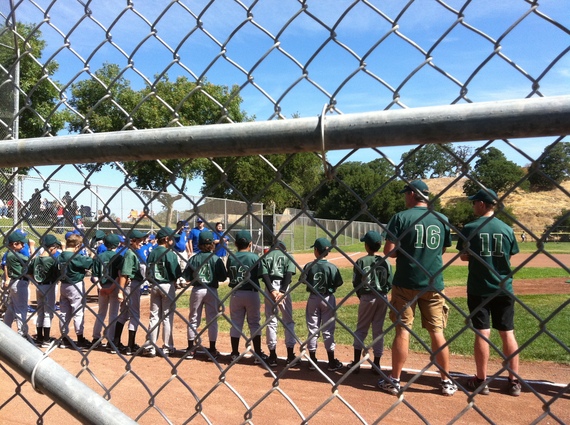
For the past decade, I've been asking people -- young and old, rich and poor, highly educated and less so -- why they didn't seem to care about climate change. Or at least, why they didn't seem to care enough to do something about it.
I did not do this as part of a formal poll, or even as a representative of an organization. In the beginning, I was simply curious because I'd had a powerful "ah ha" moment in which I went from being someone who rarely thought about the environment to someone who understood that global warming, like other sustainability tipping points, could have a significant effect on my children's lives. This enormous but once seemingly dismissible issue suddenly felt very personal and urgent. And still, I had to go make dinner.
It tended to go like that. Glimpses of insight into the profound importance of this particular moment in time were followed by something else that pulled my focus away. I wondered: Was this what other people experienced? How did they relate to the sobering reality of a changing climate and all it foreshadowed, while also going about work, family and the many daily occupations of modern life? And if they didn't think about it, why didn't they?
So (as I ultimately changed careers to focus on climate and sustainability communications) I raised the topic with hundreds of unsuspecting friends, acquaintances and strangers: While waiting to pick up my kids from school. Riding in a taxi. Sitting on the sidelines of a soccer field. Mingling at a party. Going to the movies with friends. Hiking with other dog-owners. Visiting at my mom's assisted living center.
I also sought out professional, scholarly and other expert insights. I read widely, attended conferences, and interviewed dozens of professors of psychology, sociology, risk analysis, social movements, political science, systems thinking and neuroscience. And I reflected deeply on my earlier work in the most successful social movement in modern American history, the gay and lesbian rights movement, which taught me a great deal about how big social changes can occur in a relatively short time.
What I have learned has been both humbling and inspiring. It has persuaded me that the obstacles to engaging Americans in the needed responses to global warming are, without question, thorny and vast. Some have to do with the issue itself; some with the ways in which our brains are wired; and some with the ways in which we have come to think about ourselves in relation to this and other big issues. But if the first two sets of obstacles are ones that we are more or less stuck with, the last set concern things we can do something about -- quite a few things, as it turns out.
I've come to think of these obstacles, and the opportunities for overcoming them, in baseball terms. For one reason, because we need to do a better job of connecting with American values when we address climate change. And for another, because the steps to more effective communications and engagement can be listed in roughly this order:
Getting to first base -- attracting attention
Getting to second base -- inspiring the genuine caring that is a precursor to action
Getting to third base -- encouraging action
Getting a home run -- sustaining the changes we need
If I have a take-away, it is that engaging more Americans in climate action requires that we talk about this issue with more humanity -- more openness, honesty and heart. We have to get as acquainted with the feelings as the facts of global warming. We also, as many have said, have to find the stories and symbols people can relate to. We have to build community. We have to communicate with vision. We have to be inspiring. Perhaps most importantly, we have to find and share our own spirit of confidence. In short, we need to bring more emotional and social intelligence to this challenge.
Interested in the specific obstacles and recommendations? Follow here, where I will be sharing one obstacle, and recommendations for how to overcome it, roughly once a day.
An earlier version of this appeared on my blog, A Better Climate.

